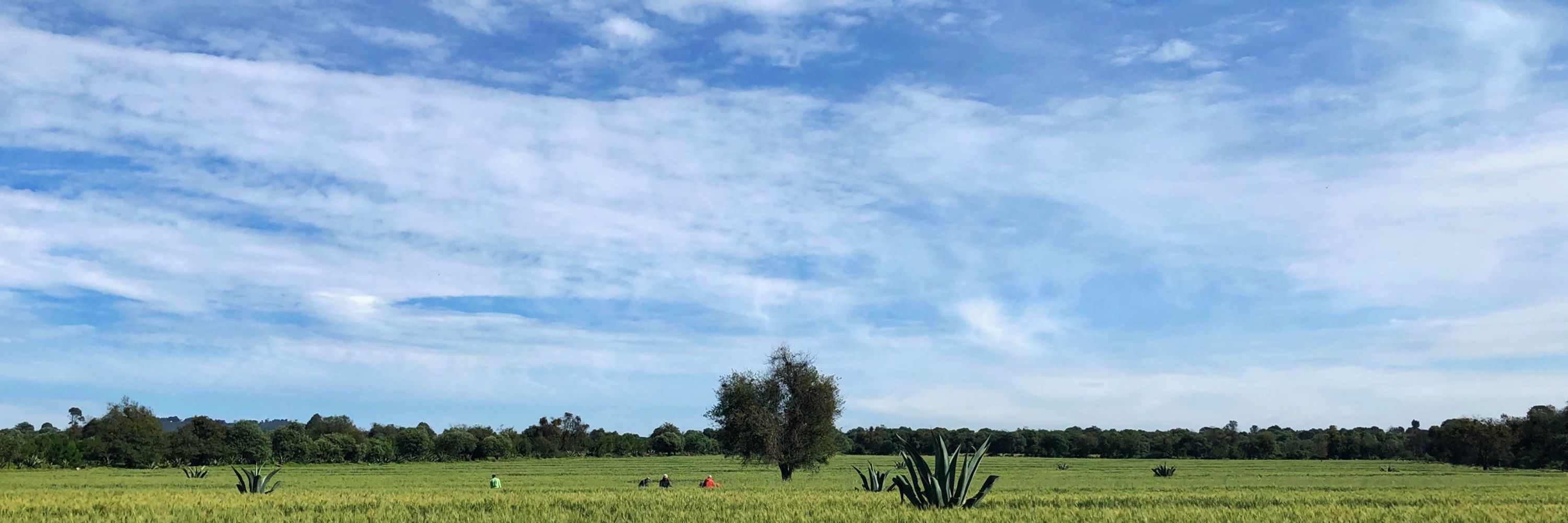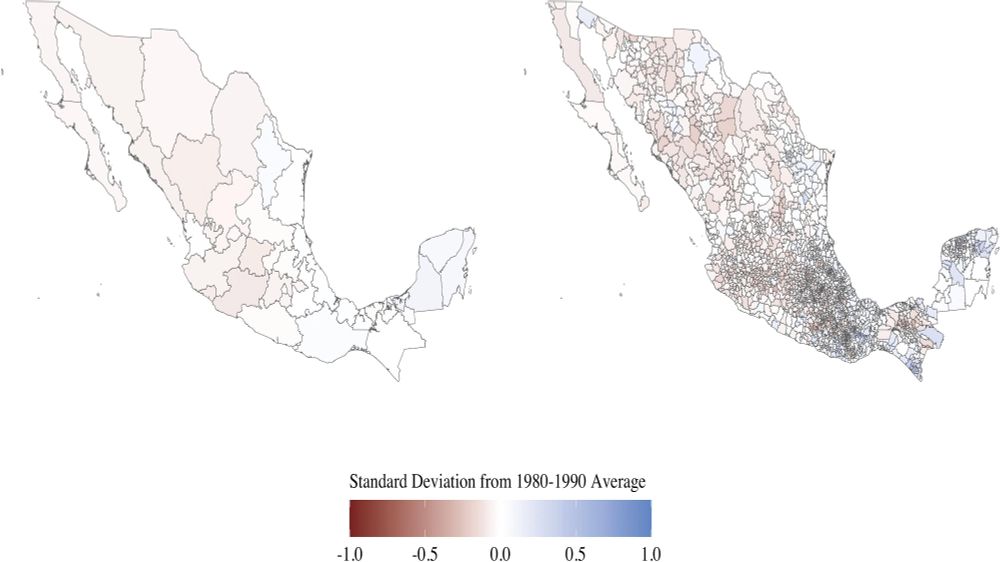
Remote Sensing + Machine Learning for Ag/Dev econ questions
joelferg.github.io
Abdoulaye Cisse, Alain de Janvry @natureatcal.bsky.social, @joelferguson.bsky.social, @marcogn.bsky.social, Samba Mbaye, Elisabeth Sadoulet & Mame Mor: voxdev.org/topic/agricu...

Abdoulaye Cisse, Alain de Janvry @natureatcal.bsky.social, @joelferguson.bsky.social, @marcogn.bsky.social, Samba Mbaye, Elisabeth Sadoulet & Mame Mor: voxdev.org/topic/agricu...

I’m really proud of the work that my coauthors - Abdou, Alain, @marcogn.bsky.social, Samba, Betty, and Mame Mor - and I put into this.
doi.org/10.1016/j.jd...
I’m really proud of the work that my coauthors - Abdou, Alain, @marcogn.bsky.social, Samba, Betty, and Mame Mor - and I put into this.
doi.org/10.1016/j.jd...

🔗 Info + application: www.auffhammer.com/summer-school
📅 Deadline: May 14 | Program: Aug 18–22 at Berkeley
We especially encourage early stage Ph.D. students with possible interest in EEE topics! Must be enrolled in North American Econ"ish" Ph.D. program.
🔗 Info + application: www.auffhammer.com/summer-school
📅 Deadline: May 14 | Program: Aug 18–22 at Berkeley
We especially encourage early stage Ph.D. students with possible interest in EEE topics! Must be enrolled in North American Econ"ish" Ph.D. program.
Special thanks to @marcogn.bsky.social @tedmiguel.bsky.social and Sol Hsiang for all their support throughout my PhD/postdoc and the job search

Special thanks to @marcogn.bsky.social @tedmiguel.bsky.social and Sol Hsiang for all their support throughout my PhD/postdoc and the job search
Earth System Modelers wanted at Oregon State University
Hiring multiple tenure-track/tenured faculty in Computational Earth System Science, at Assistant, Associate and/or Full Professor ranks. Deadline 15th April jobs.oregonstate.edu/postings/165...

Earth System Modelers wanted at Oregon State University
Hiring multiple tenure-track/tenured faculty in Computational Earth System Science, at Assistant, Associate and/or Full Professor ranks. Deadline 15th April jobs.oregonstate.edu/postings/165...

Today on VoxDev, @marshallburke.bsky.social , @joelferguson.bsky.social, Solomon Hsiang Stanford Doerr School of Sustainability & @tedmiguel.bsky.social UC Berkeley explore the conflict-climate change relationship
voxdev.org/topic/instit...

go.bsky.app/PTSxCQf
go.bsky.app/PTSxCQf
Undocumented migration MX->US increases when communities experience droughts. www.pnas.org/doi/10.1073/...

Undocumented migration MX->US increases when communities experience droughts. www.pnas.org/doi/10.1073/...
Light on math (I don’t think there’s any), heavy on economic intuition, covers a lot of ground

Light on math (I don’t think there’s any), heavy on economic intuition, covers a lot of ground

Presenters:
✨ Joel Ferguson (Stanford, @joelferguson.bsky.social )
✨ Na Zhang (UIUC)
✨ Micah Cameron Harp (Kansas State)
Register & learn more: cornell.zoom.us/meeting/regi...
📈📉 #EconSky

Presenters:
✨ Joel Ferguson (Stanford, @joelferguson.bsky.social )
✨ Na Zhang (UIUC)
✨ Micah Cameron Harp (Kansas State)
Register & learn more: cornell.zoom.us/meeting/regi...
📈📉 #EconSky
In this setting there’s a natural analogue of trajectories, eg Di=(0,lo,lo), Dj=(0,lo,hi). Seems like a similar logic could apply
In this setting there’s a natural analogue of trajectories, eg Di=(0,lo,lo), Dj=(0,lo,hi). Seems like a similar logic could apply
scholar.google.com/scholar?hl=e...
If so, I’ll take a look and get back to you
scholar.google.com/scholar?hl=e...
If so, I’ll take a look and get back to you
Just some quick thoughts based on new DiD logic
Just some quick thoughts based on new DiD logic

